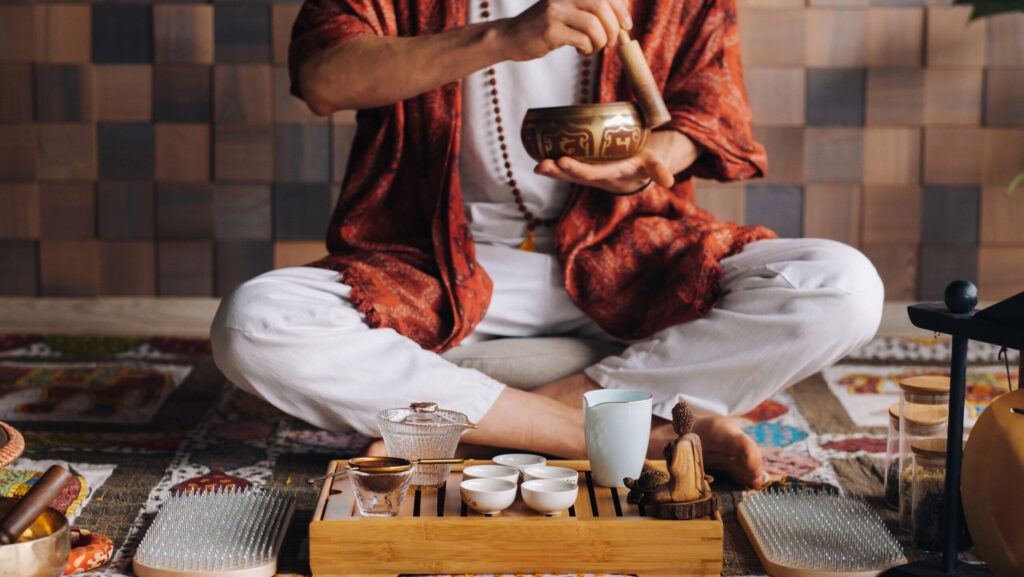By The Frontpage Journal
Sri Lanka, long known for its natural beauty and rich cultural heritage, is emerging as a premier destination for wellness tourism. Visitors from across the globe are drawn not only to its beaches and ancient temples but increasingly to its holistic healing traditions—Ayurveda and Yoga—offered within serene retreats that blend ancient wisdom with modern comfort. This growing sector reflects a broader lifestyle trend where travelers seek health, balance, and rejuvenation in immersive cultural experiences.
Ayurveda, the traditional system of medicine rooted in Sri Lanka’s history, plays a central role in this wellness renaissance. Based on natural remedies, herbal oils, and personalized therapies, Ayurveda focuses on restoring harmony between mind, body, and spirit. Retreat centers across the island provide authentic Ayurvedic consultations, massage therapies, detox programs, and dietary plans designed to cleanse and strengthen. These treatments, passed down through generations of practitioners, offer visitors a profound connection to the island’s healing legacy.
Complementing Ayurveda is the practice of Yoga, which has seen a surge in popularity worldwide. Sri Lankan retreats often integrate Yoga sessions—ranging from gentle Hatha to dynamic Vinyasa—into daily schedules, emphasizing breathwork, meditation, and mindful movement. Many centers are set in tranquil natural environments: hilltop resorts overlooking misty tea plantations, secluded coastal villas, or forest lodges surrounded by wildlife. Such settings enhance the experience, inviting guests to slow down and reconnect with themselves and nature.
What sets Sri Lanka’s wellness tourism apart is its seamless blend of tradition and modernity. While rooted in ancient practices, many retreats offer five-star amenities, expert international instructors, and personalized wellness plans tailored to contemporary lifestyles. Technology is harnessed to provide online consultations, virtual follow-ups, and wellness tracking, making the experience accessible even before arrival and after departure.
The economic impact of this trend is significant. Wellness tourism supports local communities by creating jobs for Ayurvedic doctors, therapists, yoga teachers, cooks, and artisans. It also encourages sustainable tourism practices, with many retreats focusing on organic farming, waste reduction, and cultural preservation. Visitors often engage in cultural activities—learning about herbal medicine, participating in traditional cooking classes, or attending meditation workshops—further enriching their stay and supporting local heritage.

Sri Lankan wellness tourism appeals to a wide range of travelers. Some seek recovery from stress and chronic conditions, others pursue spiritual growth or physical fitness. Families, solo travelers, and couples all find offerings suited to their needs. The growing number of international certifications and quality standards ensures that guests receive safe, effective, and authentic care.
However, challenges remain. The industry must balance commercialization with respect for cultural authenticity and environmental impact. Training and regulation are crucial to maintaining high standards and protecting indigenous knowledge. Ongoing collaboration between government, private sector, and local communities is vital to sustainable growth.
For both local and foreign readers, Sri Lanka’s wellness tourism tells a story of tradition reimagined for the modern world. It showcases how ancient healing arts can thrive within contemporary lifestyles and global travel trends. More than a business, it is a cultural bridge inviting visitors to experience health and harmony through the island’s unique heritage.
In embracing Ayurveda, Yoga, and wellness retreats, Sri Lanka offers more than relaxation. It offers a holistic journey—a chance to heal, transform, and reconnect in a place where nature, culture, and care come together in perfect balance.




